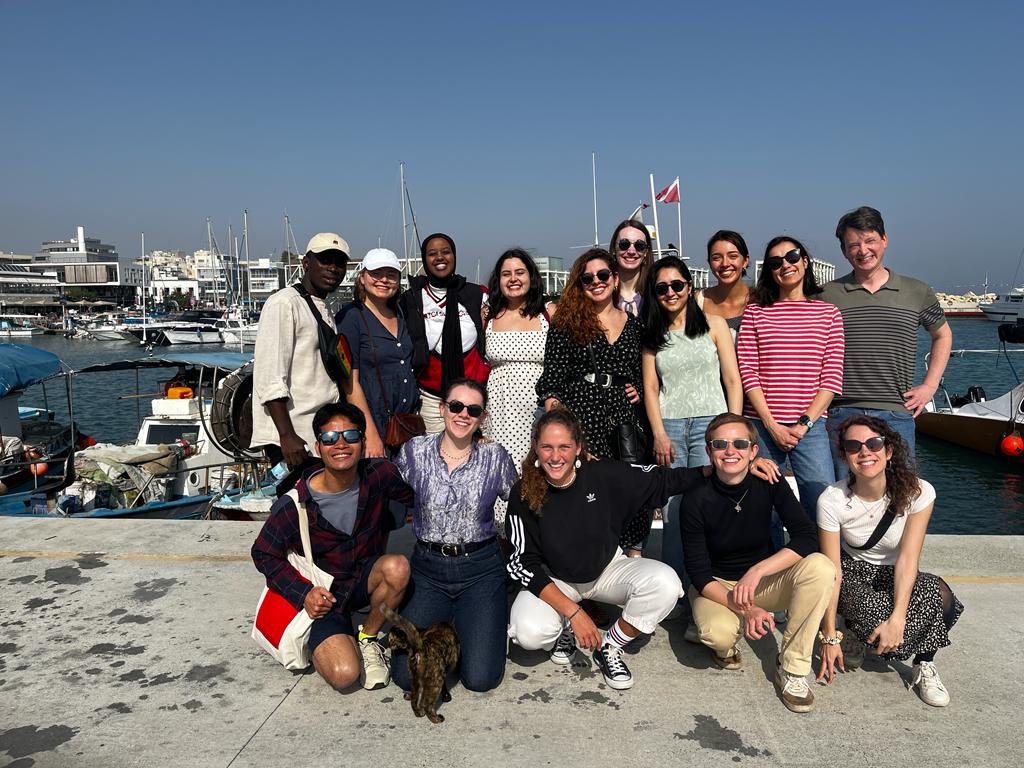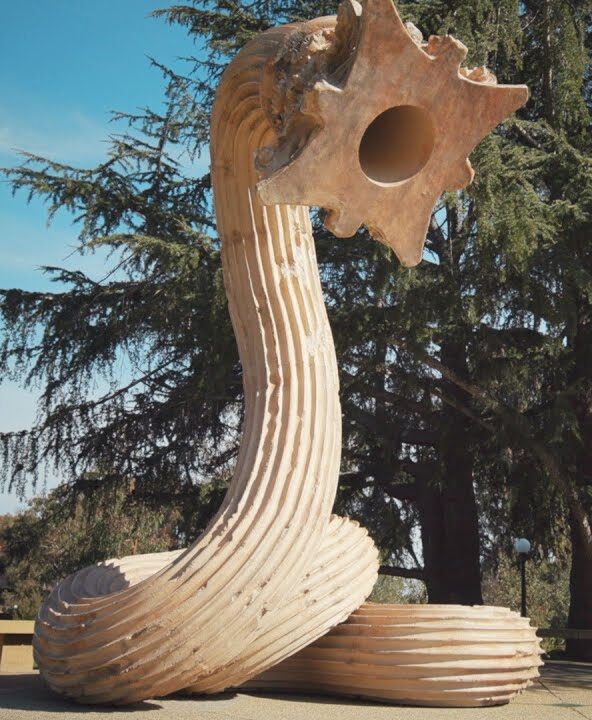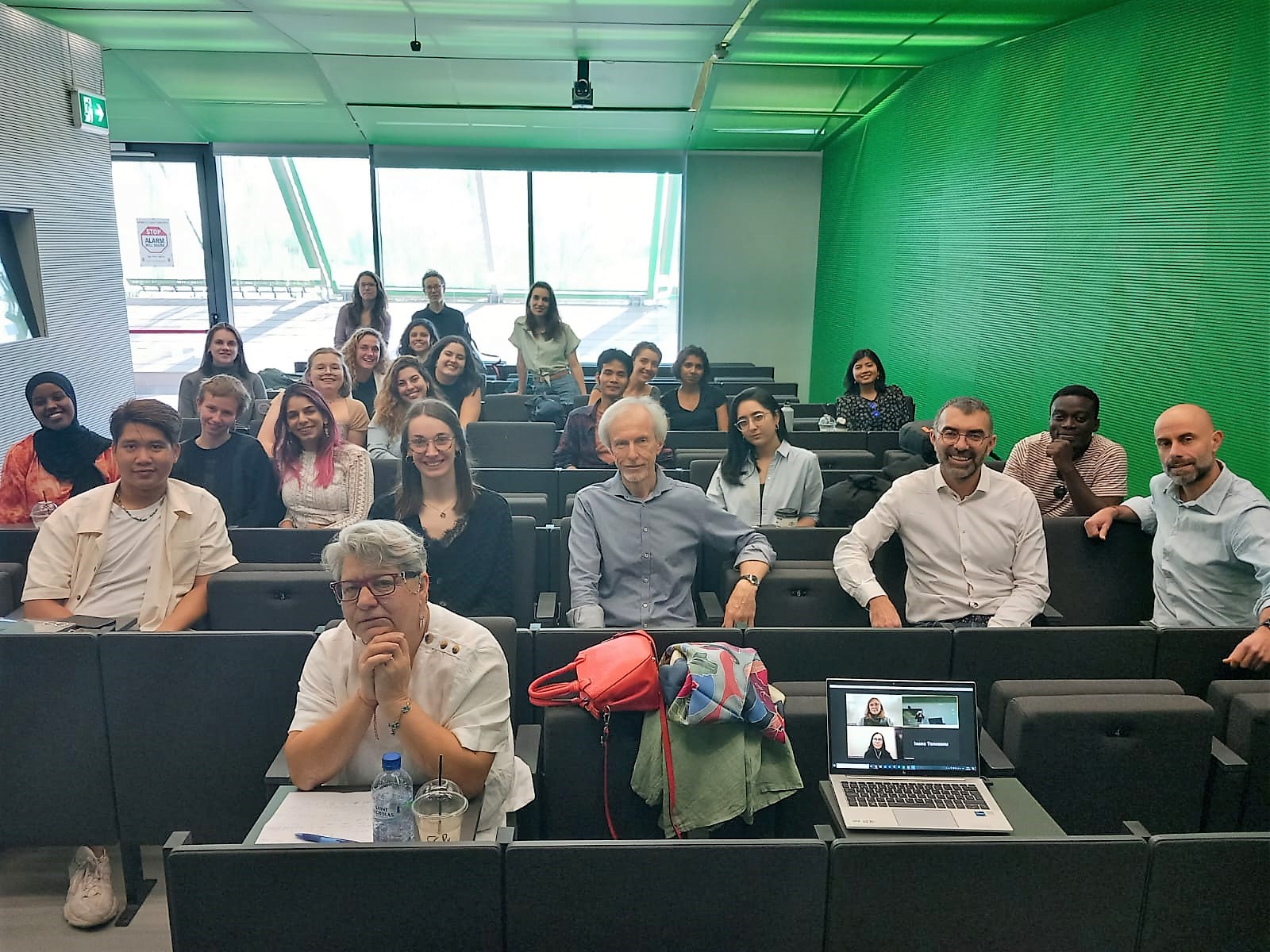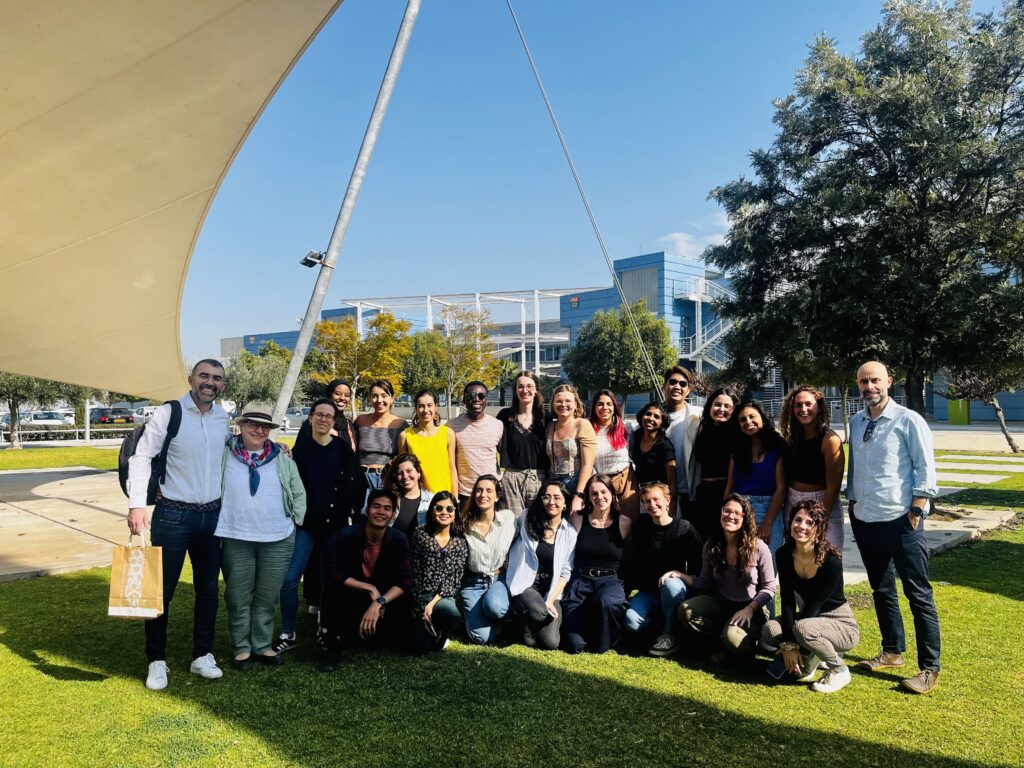
The University of Cyprus could finally welcome the GLOBED Winter School, after two editions of online and hybrid events due to the pandemic. The event, this time framed under the title Empires of knowledge in education? Postcolonial patterns and decolonial possibilities, is one of the peaks of the programme, where a lot of learning, reflections and emotions take place, and doing so in person has without question an immense added value.
There was another key date that Cyprus —like Rio, Tenerife, Cadiz— was especially glad to celebrate again: Carnival. In concrete, the Southern city of Limassol was driving crazy, steeped in a colourful, loud parade, when students and professors were landing in the island, as if it was their welcoming party. One day later, on Green Monday, Globed students and professors walked together the sleepy streets of Limassol among masks, defleted ballons and confetti. Its long marina, in the afternoon, turned out to be the perfect spot to catch up.
The Winter School started officially on Tuesday 28th of February, at the sun-kissed and impressive New Campus of the University of Cyprus. The first day became a full immersion into the Cypriot history and culture, starting with the master class A Journey in Cyprus Space and Time, by Professor Helen Phtiaka (University of Cyprus). After this introduction, the group head to the UN buffer zone and visited the NGO Home for Cooperation, an organization carrying out inclusive activities in an area where two social communities, languages and religions converge. A final guided tour zigzagging the border ended up on the other side: from the Greek Nicosia to the district of Lefkoşa —from orthodox churches to mosques, from Greek salads to the sweetest baklava— in just 50 metres. Cats were equally present in both sides. The UN buffer zone was established in 1974, after the Turkish invasion of Cyprus and the eventual partition of the island into the Republic of Cyprus and the yet unrecognized Turkish Republic of Northern Cyprus.
Wednesday started with the enthusiasm of Professor Laila Kadiwal, from the UCL Institute of Education. Her theatre-based seminar, on Black Lives Matter, Education and International Development, mesmerised the whole cohort, which was touched by a big dose of reflection on our own contexts, “education and work experiences and what these ideas may offer to question assumptions we may have taken for granted.”
A fundamental part of the Winter School has to do with fieldwork workshops. During this activity, students present their initial findings, issues encountered while collecting data, and expect feedback from peers and professors. After months of individual work, expressing out loud the ongoing research makes it more real, and helps to understand what stage one has reached. Doing research is one thing, but communicating the results efficiently is just as important. For this reason, Dr. Charalambos Charalambous (University of Cyprus) was invited again to polish the students’ academic writing skills.
Professor Stephen Carney (Roskilde University) was in charge of closing the Winter School with a lecture entitled Challenging the ‘abyssal line’ in education: globalisation, academic knowledge production and affect, also followed by the students insights. Can a harmonious corinthian column represent the abstract concept of imposition?


The Winter School was extended one more week, remotely, to accommodate other lectures and workshops. First, the presentation From decolonisation to decolonising by Désirée Acholla, GLOBED alumna from the first cohort (2015/17), who is currently doing a PhD at the University of Southampton on international development and its bounds with colonial power dynamics.
Finally, the career workshop session counted, in first place, on Dr. Natalie Papanastasiou, Research Grant Specialist, and her presentation on How to apply for a PhD grant? and, in second place, with the experience of the GLOBED alumni Diego Posada and Marina López Leavy (PhD and Research); Lainie Keper, Nimra Afzal and Jacqueline Howell (International Organisations); Carlos Bueno and Arianna Valentini (Consultancy in Education); and Léa Ichikawa and Marisol Tarriba (non-profit).
In 2024, the Winter School will take place again in Cyprus, bringing together the students of the 7th cohort. By then, we will continue exploring this Mediterranean island, desired by the most feared empires along its history. And, if the lunar and the programme’s calendars allign, we should definitely celebrate Carnival.
Find the whole programme of the 2023 Winter School here.
Do you want to stay up to date? Subscribe to our monthly Newsletter!

